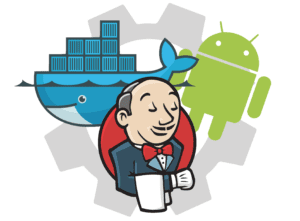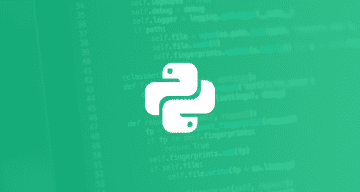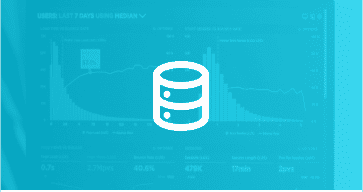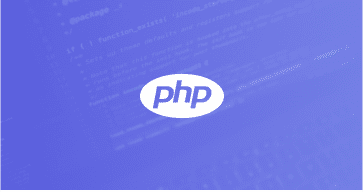Mobile Development
Mobile software development involves creating applications and software specifically designed for operating systems like iOS and Android. Developers utilize programming languages such as Swift and Objective-C for iOS and Java or Kotlin for Android to build native applications running smoothly on these platforms. The development process includes designing user interfaces, implementing functionality, and optimizing performance for a seamless user experience on iOS and Android devices.

Mobile Development
Rapid advancements and innovation mark the current state of mobile software development. Mobile applications have become integral to our daily lives, catering to various needs and enhancing user experiences. Our developers focus on creating robust, user-friendly apps that run seamlessly across different platforms and devices. With the rise of technologies like artificial intelligence (AI), machine learning (ML), and augmented reality (AR), mobile apps are becoming more intelligent, personalized, and immersive.
One notable trend in mobile software development is the growing popularity of cross-platform development frameworks. These frameworks, such as React Native and Flutter, enable developers to build apps that can run on multiple platforms, such as iOS and Android, using a single codebase. This approach significantly reduces development time and effort, making it easier for developers to reach a wider audience. Moreover, cloud-based development platforms and services are gaining traction, allowing developers to build, test, and deploy mobile apps more efficiently.
Discover
Our focus is on understanding the needs and goals of the project. This involves conducting market research, user surveys, and competitive analysis to identify opportunities and gather requirements for the mobile application.
Define
The gathered information defines the mobile application’s scope, features, and functionalities in the Define stage. This includes defining the app’s scope, creating user personas, outlining the user journey, and setting project milestones and deliverables.
Develop
We start building the application based on the defined requirements. This involves coding, designing user interfaces, integrating APIs, and conducting iterative testing to ensure the application functions as intended on various mobile platforms and devices.
Deliver
The developed mobile application is thoroughly tested for quality assurance and undergoes final refinements before deployment. This stage includes app store submission, documentation preparation, and user onboarding planning.
Mobile software development involves creating and designing applications for mobile devices like smartphones and tablets. It consists in writing code, designing user interfaces, and implementing functionality to create mobile apps that run on various operating systems like Android and iOS.
Several programming languages are commonly used in mobile software development. Java and Kotlin are popular for Android app development, while Swift and Objective-C are widely used for iOS app development. Additionally, frameworks like React Native and Flutter enable developers to build cross-platform apps using JavaScript and Dart.
Mobile software development poses various challenges. Some common ones include:
Device fragmentation: The vast range of mobile devices with different screen sizes, resolutions, and hardware capabilities requires developers to ensure their apps work well across multiple devices.
Platform-specific requirements: Different mobile operating systems have guidelines, user interface paradigms, and development tools, requiring developers to adapt their apps accordingly.
Performance optimization: Mobile apps must be optimized for performance, as limited system resources like battery life and processing power can affect the user experience.
Security and privacy concerns: Mobile apps often handle sensitive user data, so ensuring data protection, secure network communication, and user privacy are crucial considerations.
What is the mobile app development lifecycle?
The mobile app development lifecycle typically includes the following stages:
Planning and research: Defining the app’s purpose, target audience, and desired features, as well as conducting market research and competitor analysis.
Design: Creating wireframes, user interface (UI) designs, and prototypes to visualize the app’s layout, interactions, and overall user experience (UX).
Development: Writing the code, implementing features, and integrating APIs to build the app’s functionality. This stage involves choosing the appropriate programming language, development framework, and tools.
Testing and quality assurance: Conduct various tests to ensure the app functions correctly, is user-friendly, and performs well on different devices. This includes functional testing, usability testing, performance testing, and security testing.
Deployment: Preparing the app for release, submitting it to relevant app stores (such as Google Play Store or Apple App Store), and managing the distribution and installation process.
Maintenance and updates: After the app’s release, developers monitor and address user feedback, fix bugs, and release updates to enhance the app’s performance, security, and features over time.
Let's work together
Successful Delivery with these QA Automation Technologies
Unosquare + Mobile

Tips to overcome the challenges of app development for foldable phones
Since the release of the first iPhone in 2007, and the first Android phone following shortly after in 2008, smartphones became deeply enmeshed in all

How to setup a CI/CD pipeline for Android using Jenkins and Docker – Part 2
INTRODUCTION In the last part of this blog series we covered the installation and setup of Jenkins on our machine and the creation of a

How to setup a CI/CD pipeline for Android using Jenkins and Docker – Part 1
One way to improve the quality and speed of your Android application is by implementing CI/CD processes. This allows teams to focus on development of
Ready to dive in?
Start with Unosquare today.
Unosquare is a full-service, international software development agency. Through our centers of excellence we recruit, train and professionally manage talent to ensure expertise from discovery to delivery.











